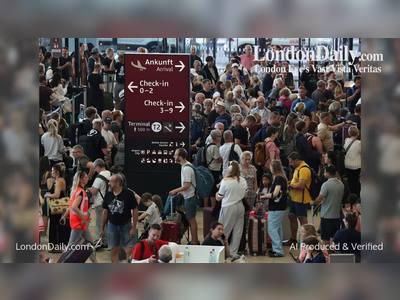Dubai Property Boom Shows Strain as Flippers Get Buyer’s Remorse
Off-plan resales weaken, oversupply builds and ratings agencies warn of correction ahead in certain segments
Dubai’s property market, after nearly five years of uninterrupted price rises, is beginning to show signs of strain as speculative buyers—especially flippers who resell off-plan properties before handover—are finding it increasingly difficult to exit their positions.
Recent data confirms that flipping, once a major part of resale activity, has dropped sharply, and market observers are warning that rising supply and stretched profit expectations may trigger a correction starting in 2026.
The pace of development is accelerating: about ninety-three thousand new units are expected to be delivered in 2025 alone, and a total of around 150,000 by 2027.
Most of this is apartment stock, which has raised concerns over oversupply in lower-end segments.
Ratings agencies including Fitch and Moody’s project that this surge in supply will begin to erode price gains, with Fitch forecasting up to a fifteen percent drop in some markets.
Flipping has already cooled.
According to brokers and data providers, off-plan resale make-ups in the resale market have fallen from roughly one-third to around twenty percent in July.
Many investors holding unfinished units report little interest from buyers; some have had no inquiries at all months after listing the units.
While luxury villas and high-end homes continue to show stronger resilience, weakness is becoming apparent among more modest apartments.
Analysts caution that many of those lured by promise of quick profits have underestimated handover delays, carrying costs, down payment obligations, and the risk of declining margins due to increasing competition.
Despite these pressures, fundamental demand remains strong among end-users and foreign investors, especially with regulatory reforms, visa incentives, and a weaker US dollar increasing purchasing power.
Authorities and developers are watching carefully—still preparing new launches but also signalling caution, particularly in regions with high apartment density and speculative inventory.
A softening in price growth appears likely, especially in overbuilt areas.
Experts expect a transition from rapid price escalation to more moderate growth or mild corrections in certain segments, rather than a full collapse—assuming macroeconomic conditions remain stable.
Recent data confirms that flipping, once a major part of resale activity, has dropped sharply, and market observers are warning that rising supply and stretched profit expectations may trigger a correction starting in 2026.
The pace of development is accelerating: about ninety-three thousand new units are expected to be delivered in 2025 alone, and a total of around 150,000 by 2027.
Most of this is apartment stock, which has raised concerns over oversupply in lower-end segments.
Ratings agencies including Fitch and Moody’s project that this surge in supply will begin to erode price gains, with Fitch forecasting up to a fifteen percent drop in some markets.
Flipping has already cooled.
According to brokers and data providers, off-plan resale make-ups in the resale market have fallen from roughly one-third to around twenty percent in July.
Many investors holding unfinished units report little interest from buyers; some have had no inquiries at all months after listing the units.
While luxury villas and high-end homes continue to show stronger resilience, weakness is becoming apparent among more modest apartments.
Analysts caution that many of those lured by promise of quick profits have underestimated handover delays, carrying costs, down payment obligations, and the risk of declining margins due to increasing competition.
Despite these pressures, fundamental demand remains strong among end-users and foreign investors, especially with regulatory reforms, visa incentives, and a weaker US dollar increasing purchasing power.
Authorities and developers are watching carefully—still preparing new launches but also signalling caution, particularly in regions with high apartment density and speculative inventory.
A softening in price growth appears likely, especially in overbuilt areas.
Experts expect a transition from rapid price escalation to more moderate growth or mild corrections in certain segments, rather than a full collapse—assuming macroeconomic conditions remain stable.










